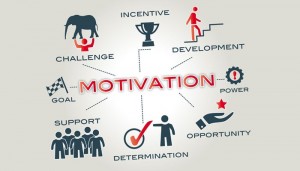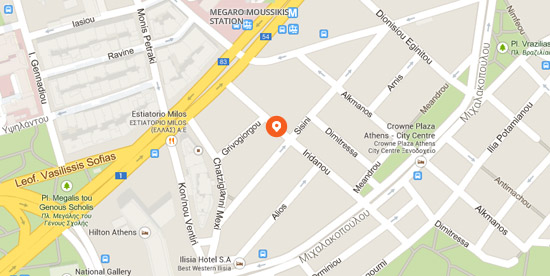When losing weight seems… impossible
Weight loss occurs when the energy intake from food (that is calories) is less than the energy consumed by our body.
The larger that difference, the more the rate at which body weight goes down.
Energy intake, isn’t the sole factor affecting weight loss, but it is by far the most important.
Evidently, one cannot slim down without limiting his/hers energy input.
The main reasons for not losing weight
- Insufficient information: Foods which are considered “healthy” or conducive to weight loss may be neither. For example, it is common knowledge that olive oil is good for our health. However, few realize that a big spoon packs about 120-150 calories, meaning that if we don’t limit our consumption to a certain quantity per day we shall “pay the prize”. Other foods, we look at as “fruits”, those include fruits but also …fish and rusk! But those aren’t without calories either, hence they have to be consumed in moderation.
- Overestimating the calorie burning effects of exercise: By running for 30 minutes, we burn about 300-400 calories. By swimming for 30 minutes, we burn 200-350 calories. A 30 minute walk, burns 100-150 calories. Those calculations were made with a human weighing about 73 kg in mind. On the other hand, eating a toast adds about 220-250 calories, whereas a pie with cheese adds about 350-450. The ease with which energy intake via food can offset exercise’s energy expenditure should be abundantly clear.
Nevertheless, there are times, where continued effort is not rewarded properly on the scale.
Why the scale may not be moving
Exercise
Let’s imagine a scenario where you’ve adjusted your diet and exercise vigorously in order to lose weight sooner rather than later. Yet, instead of losing you’re gaining. This isn’t uncommon when someone begins to exercise and may be attributed to one of three causes:
- Muscles are stressed to, an up to now, unusual extent which may lead to a minor inflammation. In order to “cure” this inflammation the body withholds water at the point of the inflammation. This is a short term process.
- When we exercise systematically our body stores more glycogen as an exercise fuel, which explains a small weight gain.
- After 1-2 months of exercising, given we do it the right way and at the right frequency, muscle mass increases, perhaps so much as to show up on the scale as weight gain. Of course, by then we may have already experienced some weight loss, in part due to consistently exercising.
You may observe a similar “misapprehension” if you weigh yourself right after exercising. Increased sweating during and immediately after exercise reduces body weight. But this is not a loss in body fat. When body fluids levels’ have been restored, the day after, the scale will have returned at the pre-sweating point. That’s not to say that exercise and everyday movement are not important components of the weight-loss effort and should be overlooked.
Premenstrual Syndrome
Premenstrual Syndrome develops during the period preceding menstruation. Apart from irritability, melancholy and a tendency to eat, it may cause weight gain due to fluids withholding and bloating. At the beginning of menstruation, or right after, the syndrome subsides and weight is restored.
Hypothyroidism
One of hypothyroidism’s symptoms (if untreated) is a small weight gain. The more severe the hypothyroidism the more the gain. Its causes, in this case, are complicated and not always linked to increased body fat, but rather to the accumulation of salt and water. Excessive weight gain is rarely associated to hypothyroidism. In general, hypothyroidism accounts for an additional 2, 5 – 5 kg.
Constipation
A common “side-effect” of weight-loss diets, prevalent especially when we skip fruits, vegetables and other high-fiber foods, exercise and the recommended water intake is either the development of mild constipation or the aggravation of pre-existing constipation. As a result, weight doesn’t drop and we feel disappointed. However, if we help ourselves overcome constipation and carry on with our efforts we will be rewarded. This is what we should do in order to make it:
- Eat enough fiber (fruit, vegetables, wholegrain foods, and legume).
- Exercise.
- Drink a sufficient quantity of water daily.
If constipation persists there are useful foods and supplements that you may find helpful in combination with the above instructions. However, before you use them, consult with an expert.
Medicating
There are several medications, which affect body weight. For example antidepressants, antipsychotics, beta-inhibitors, corticosteroids, hormone therapy, antihistamines and certain diabetes therapies. That’s not to say we are completely helpless when we use one of the above.We just have to be “aware” of their effects so that we can minimize them.
Motivation versus relaxation.
Sometimes when weight loss comes to a plateau, it is because following a period of strenuous efforts motivation and concentration starts lacking. We are thus more prone to temptations, we procrastinate more, or after seeing some positive results we have now relaxed. In order to not miss a beat we may keep a foods diary and be motivated by remembering once more why we started in the first place.










